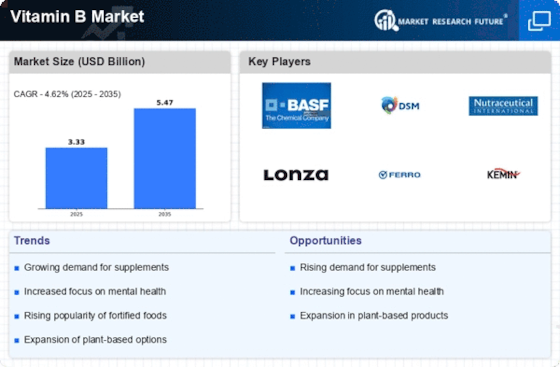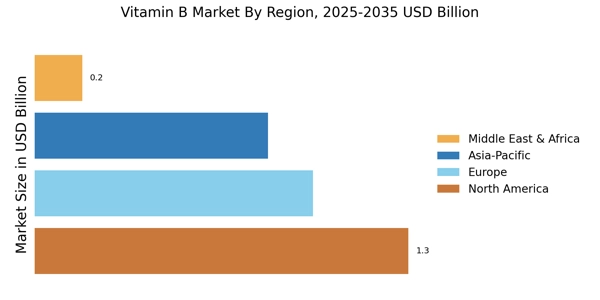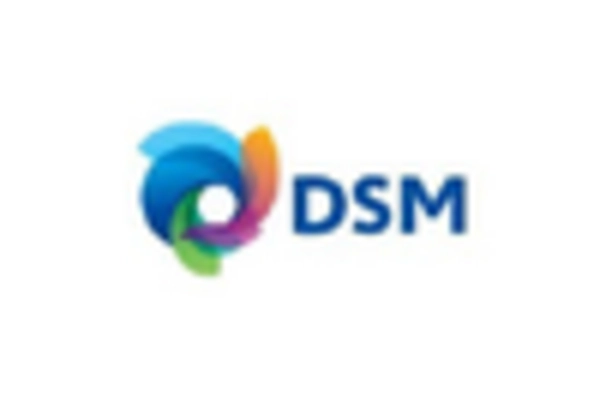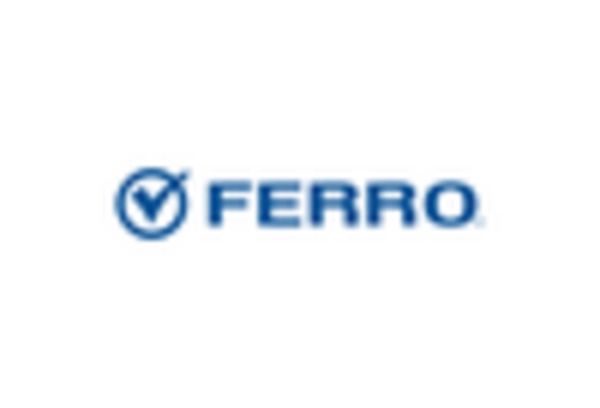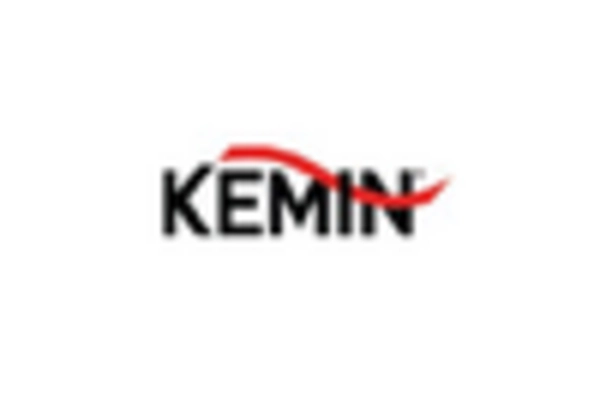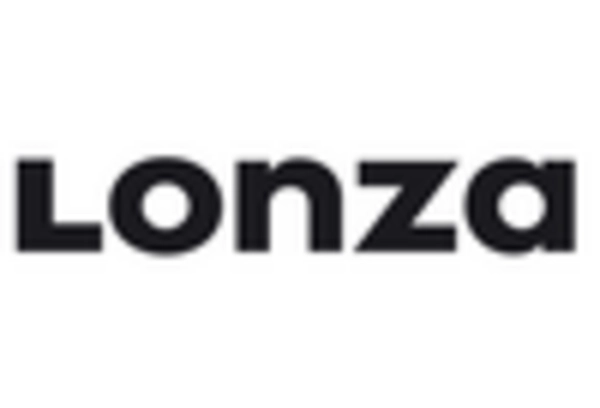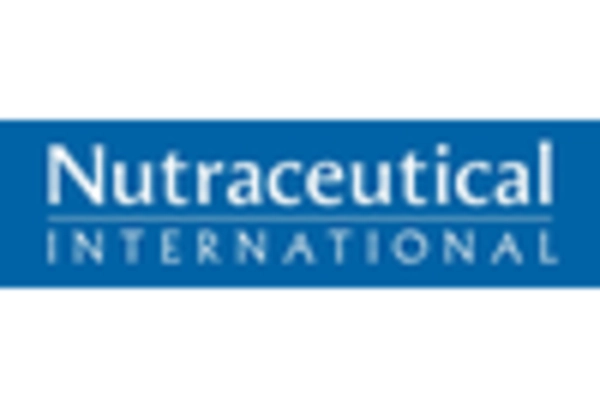Focus on Preventive Healthcare
The Vitamin B Market is experiencing a shift towards preventive healthcare, as consumers become more proactive about their health. This trend is characterized by an increasing emphasis on maintaining wellness rather than merely treating illnesses. As a result, there is a growing interest in dietary supplements, particularly those containing B vitamins, which are known to support energy production and overall health. Market Research Future indicates that the preventive healthcare sector is expected to grow significantly, with consumers willing to invest in supplements that promote long-term health benefits. This shift is prompting manufacturers in the Vitamin B Market to develop products that align with this preventive approach, thereby catering to the evolving preferences of health-conscious consumers.
Expansion of E-commerce Platforms
The Vitamin B Market is benefiting from the rapid expansion of e-commerce platforms, which have transformed the way consumers purchase dietary supplements. Online shopping offers convenience and accessibility, allowing consumers to explore a wide range of Vitamin B Market products from the comfort of their homes. Recent data suggests that online sales of dietary supplements have increased by over 25% in the past year alone. This trend is particularly appealing to younger consumers who prefer the ease of online shopping. As a result, manufacturers and retailers in the Vitamin B Market are increasingly investing in digital marketing strategies to enhance their online presence and reach a broader audience. This shift towards e-commerce is likely to continue, further driving growth in the Vitamin B Market.
Rising Popularity of Functional Foods
The Vitamin B Market is witnessing a notable increase in the popularity of functional foods, which are products enhanced with vitamins and minerals to provide additional health benefits. This trend aligns with the growing consumer preference for foods that not only nourish but also contribute to overall health. For instance, fortified cereals and energy bars enriched with B vitamins are becoming commonplace in grocery stores. Market data indicates that the functional food sector is projected to grow at a compound annual growth rate of 8% over the next five years. This growth is likely to bolster the Vitamin B Market, as consumers increasingly seek out functional foods that support energy levels and cognitive health, thereby creating new opportunities for manufacturers to innovate and expand their product lines.
Aging Population and Nutritional Needs
The Vitamin B Market is significantly influenced by the aging population, which presents unique nutritional needs. As individuals age, their ability to absorb certain nutrients, including B vitamins, diminishes. This demographic shift is prompting a greater focus on dietary supplementation to address potential deficiencies. Research indicates that nearly 30% of older adults may experience a deficiency in Vitamin B12, which is crucial for neurological function and red blood cell formation. Consequently, there is a growing demand for Vitamin B Market supplements tailored specifically for older adults. Manufacturers in the Vitamin B Market are increasingly developing products that cater to this demographic, thereby enhancing their market presence and addressing the specific health concerns of aging consumers.
Increasing Awareness of Nutritional Benefits
The Vitamin B Market is experiencing a surge in consumer awareness regarding the nutritional benefits associated with B vitamins. As individuals become more health-conscious, they are actively seeking dietary supplements that can enhance their overall well-being. This trend is particularly evident among millennials and Generation Z, who prioritize health and wellness. According to recent surveys, approximately 60% of consumers are now aware of the role of B vitamins in energy metabolism and cognitive function. This heightened awareness is driving demand for Vitamin B Market supplements, as consumers look for products that can support their active lifestyles. Consequently, manufacturers in the Vitamin B Market are responding by developing innovative formulations that cater to this growing consumer base, thereby expanding their market reach.


